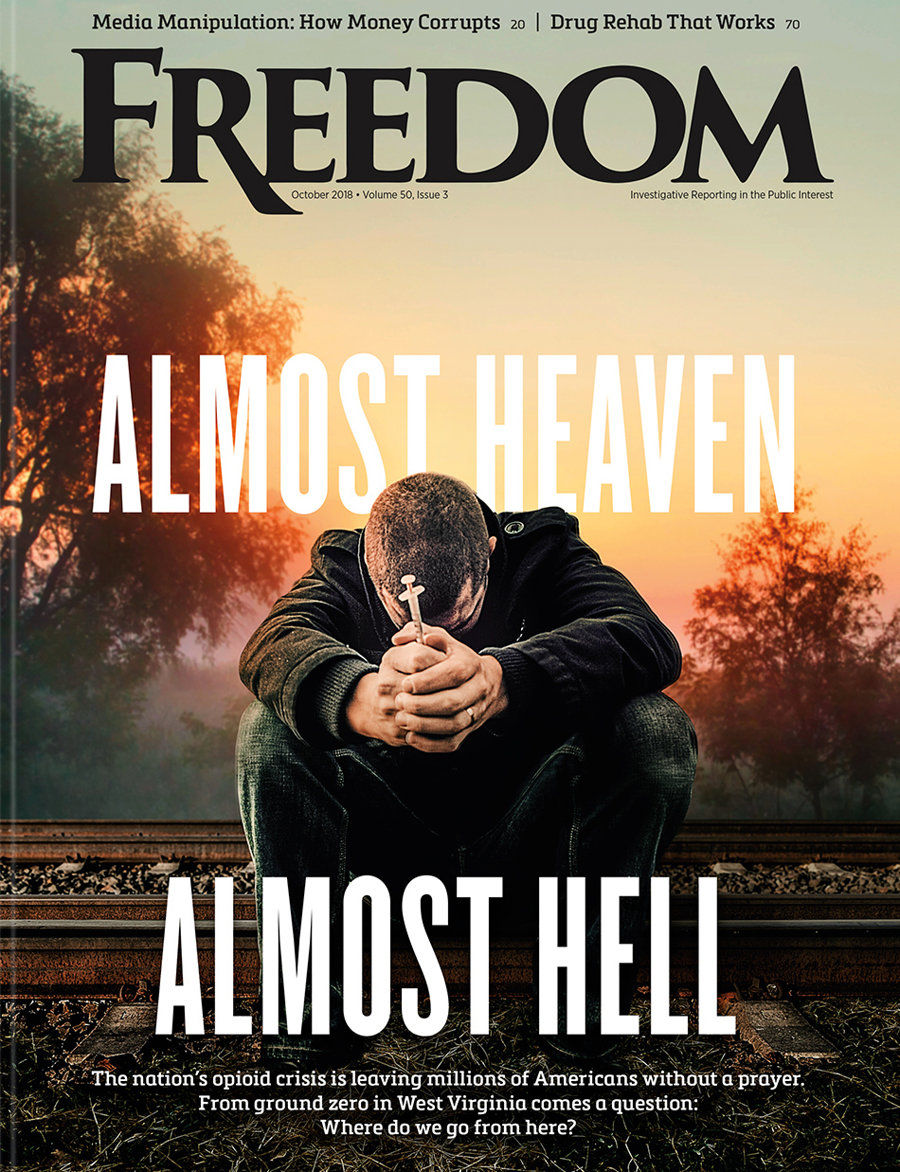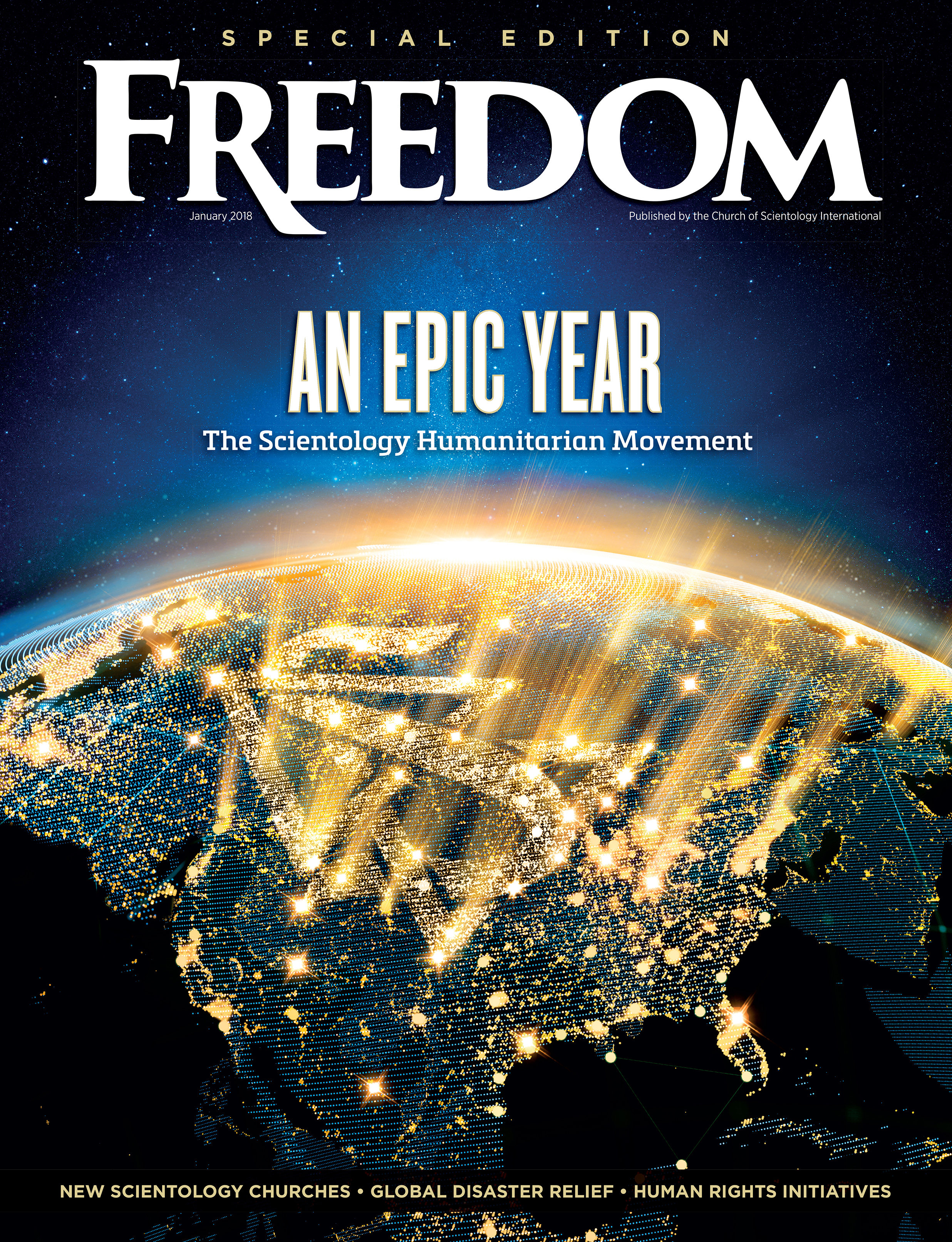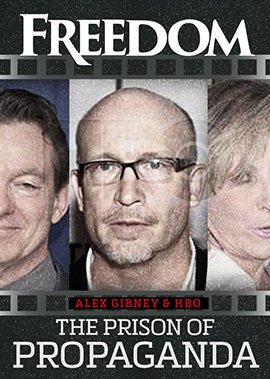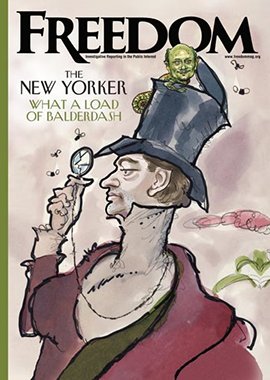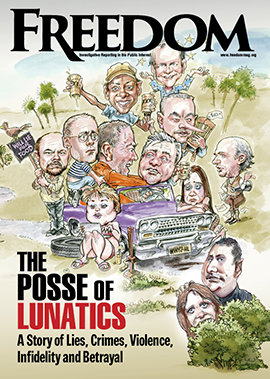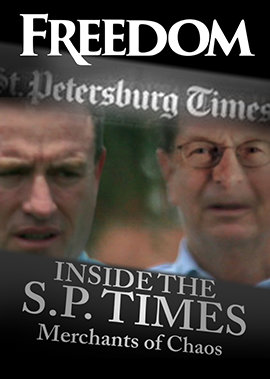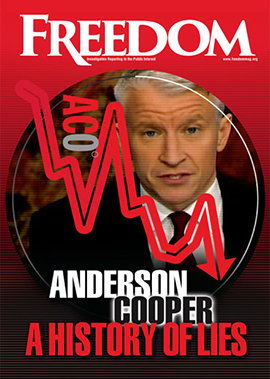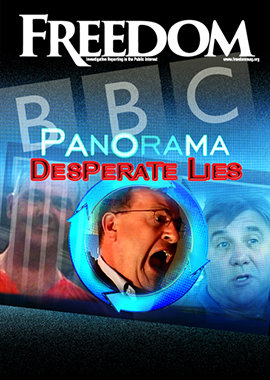He was now one of the 8 million drug users in Italy. His world collapsed into: wake up, use drugs, buy more, sleep, wake up and begin the cycle again.

But one morning, Oreste didn’t wake up. A drug-induced dance with death almost finished him at age 19. Oreste, who is now the subject of an episode of Scientology Network’s Voices for Humanity, recalls, “When I came back to my senses, it became clear to me that at any moment I could die.”
Flushing his cocaine and Ecstasy down the toilet, he made a promise to himself: No more drugs. That was in 1992. And he kept his promise, remaining drug-free ever since.
For many, though, a path back from drugs is like stumbling through quicksand. As time passed, too many of Oreste’s friends turned to crime as a path to slaking their drug thirst, died of overdoses, or perished in drug-related accidents and became nameless dots on the grim statistics graph. From bad to worse, those statistics are:
- In a nation of 60 million, one-third have experimented with drugs.
- $15 billion worth of drugs are consumed by Italians each year.
- 6,600 crimes are committed every day, many of them drug-related.
- Hundreds die each year in Italy from drug-related causes.
As Oreste’s drug fog lifted, the way forward for him became clear. He had to help others resist the tempting invitations from drug dealers, TV and movies that had lured him in the first place: “It’s fun.” “It’s cool.” “They’re not dangerous at all, what are you scared of?”
Had some of Oreste’s friends had this information, they might still be alive.
One day, Oreste’s cousin told him about a group of volunteers who picked up used syringes every Sunday morning, safely disposing of the potentially lethal biohazards. One place where many such needles could be found and collected was the train station, a popular drug-dealing hub. Oreste was all too familiar with the spot—it was where he used to buy his drugs. He joined the volunteers one Sunday, and learned they were part of an Italian chapter of the Foundation for a Drug-Free World.
Studying the foundation’s educational materials, Oreste saw how thoroughly they instruct the reader—and at a level that impacts: providing the facts with neither blame nor enforcement, and leaving it to the individual to choose what to do for him or herself.
Had some of Oreste’s friends had this information, they might still be alive. They might never have even gotten into drugs in the first place. He certainly wouldn’t have.
One 10-year-old child told Oreste he knew drugs were OK because his father takes them. What does that mean? His father’s drug abuse was the extent of that child’s drug education, and his choice—likely the wrong choice—would come about from that “education.”
“I decided that with the Truth About Drugs materials, I can do something effective about the drug problem.”
He knew where to start. His neighbors worried about a local bar frequented by competing drug dealers. One night there was a shooting. Another night a stabbing. Outside, the street was dirty, potholed. The local park had long gone to seed and was now a tangled jungle used by dealers and addicts, making this place that should have been a playground for children now a danger to avoid. The residents were unhappy but, fearing for their lives, they did nothing about the situation; the bar owner and drug dealers made it clear they wanted nothing and no one interfering with their profits—even if it meant killing one or a few people along the way.
So when Oreste attempted to place the Truth About Drugs materials in the bar, the dealers threw him out. “Go away, or we’ll beat you to death,” they warned.
He’d hit a sore spot and he knew it. Anyone else might have taken the warning and gotten out of town. Instead, Oreste told himself, “I’m on the right path. I’m doing the right thing.”
But he needed help and recruited volunteers. Together, they spread the Truth About Drugs booklets to neighborhood shops. Shop owners gained courage and began reporting suspicious activity on their streets and in the bar.

Soon, thanks to Oreste and the neighbors, the police had gathered enough evidence, raided the bar, seized weapons and drugs and shut it down. Now free of the blight on their community, residents helped Oreste continue his campaign. They began by cleaning up the park and making it family-friendly once again. “The street came back to life, the shop owners put out flowers, cleaned the sidewalk and the city fixed the road. It is a very nice street now, and the park is nice. There are children.”
But it was merely a skirmish won in a far larger war.
Oreste widened his sights to include not just one neighborhood, not just one town, but an entire nation in distress. He brought his message to the fairgrounds—with 80,000 drug-free booklets distributed at the largest comics festival in Europe, the Lucca Comics & Games convention.
He brought it to the soccer pitches, with Drug-Free World players competing against teams of firefighters, police and other nonprofits, all under the auspices of the Italian National Olympic Committee.
And he brought it to the streets, with endorsements from some of Italy’s most iconic motorcycle racers, culminating in a 1,500-mile ride through the nation’s towns, big and small, distributing anti-drug materials along the way.
The media took notice. The work of Oreste and his Drug-Free World team became the stuff of news articles, radio and TV spotlights and online interviews, reaching 20 million with the Truth About Drugs in the process.
And those 20 million included civic leaders, jolted out of their malaise and motivated to do something to rid their communities of the curse of substance abuse.
As one deputy mayor, wowed by the volunteers’ motorbike tour through Italy, put it, “This big line of bikers traveled the whole of the Italian boot. It was a beautiful thing, as if everyone was hand in hand. Oreste, you are not alone. You have many soldiers.”
Now the executive director of Drug-Free World Italy, Oreste Depaoli’s journey has taken him from addict to advocate. “I am able to make a difference in my country—to bring hope and create a better future where people are empowered to live drug-free,” he says.
“This campaign saves lives. It’s a big task. It’s not a walk in the park, but we will get it done.”






